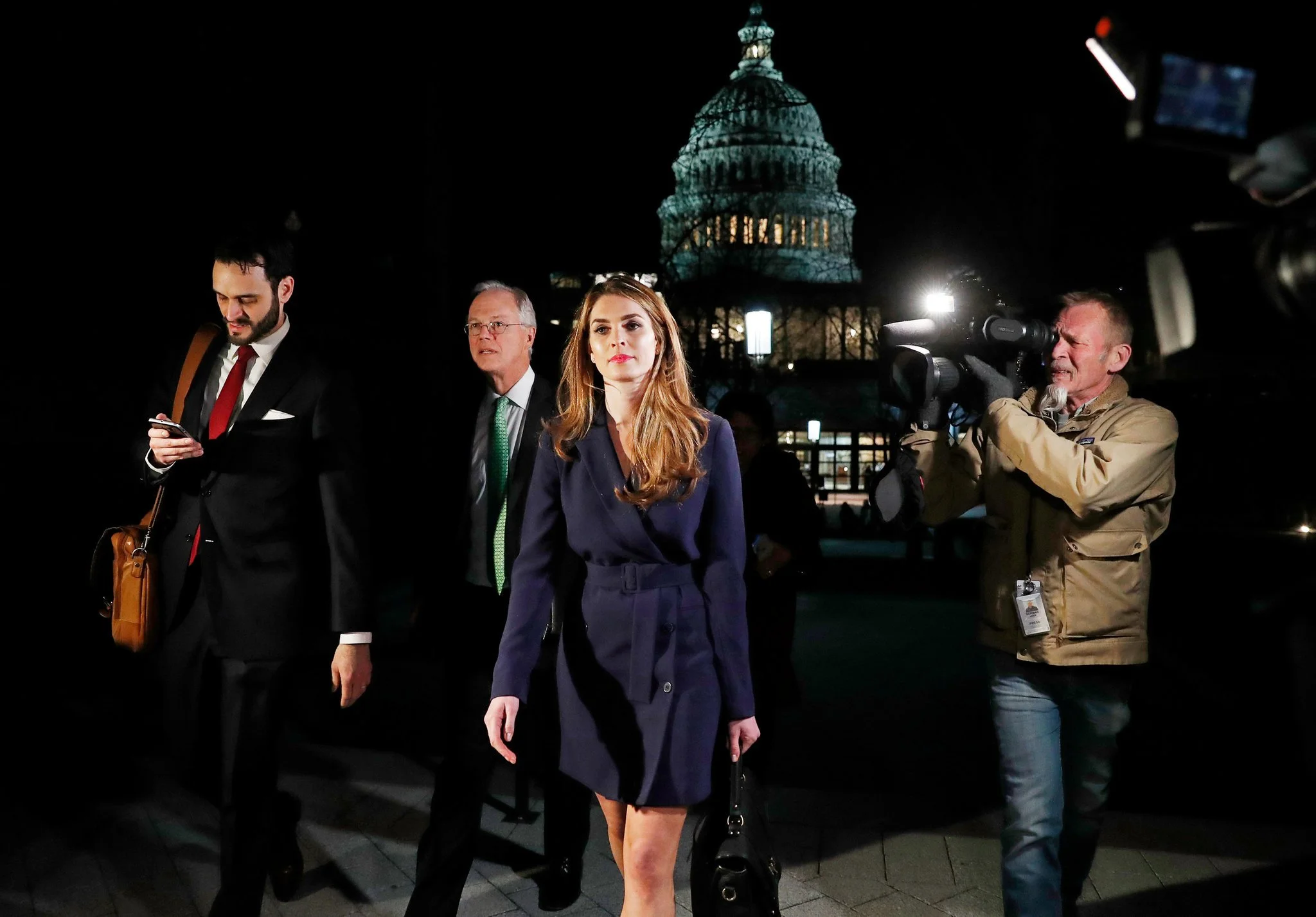White House Communications Director Hope Hicks Resigns Day After House Intel Committee Testimony
/Hope Hicks did not indicate what her next job would be or when she intended to leave her post as White House communications director. Credit: Leah Millis/Reuters
White House communications director Hope Hicks, a close ally of President Trump who has successfully managed his personality, has resigned. Hicks, a brief model and member of Ivanka Trump's fashion pr business team , comes a day after she testified for eight hours before the House Intelligence Committee. A major soundbite from the Hicks testimony was her vague admission that she has occasionally been required to tell white lies, in her work with the Trump administration. Hicks previously met for two days of interviews in December with special counsel Robert Mueller and his team.
According to The New York Times: "As communications director, Ms. Hicks worked to stabilize, to some extent, a fractious press department of about 40 people who were often at odds with one another in 2017. She maintained one of the lowest public profiles of anyone to ever hold the job, declining to sit for interviews or appear at the White House briefing room podium. That mystique added to the outsize attention she received."
Hicks found herself in the headlines recently, with the resignation of Trump and General Kelley's close aide Rob Porter, who failed to pass his security clearance due to sexual assault allegations. Hicks has been romantically involved with Porter and initially worked to craft statements defending his conduct, when she should have recused herself.
The Hope Hicks resignation reflects a White House operation that is crumbling. Yesterday, presidential adviser and son-in-law Jared Kushner lost his top-secret security clearance, the same day that his close friend and aide Josh Raffel.
This entire scenario is unfolding like a situation that we have never seen in an American presidency.
Another new headline minutes old from The New York Times: Has Jared Kushner Conspired to Defraud America?
On Tuesday, The Washington Post reported that “officials in at least four countries” — United Arab Emirates, China, Israel and Mexico — “have privately discussed ways they can manipulate” Mr. Kushner by taking advantage of his “complex business arrangements, financial difficulties and lack of foreign policy experience.” The president gave his son-in-law an expansive foreign policy role, including an effort to negotiate peace between Israel and the Palestinians. The implication in the story is that the United States government has intercepted communications of foreign leaders talking about ways they could take advantage of the inexperienced White House aide, whose family real estate empire is facing substantial debt woes.
